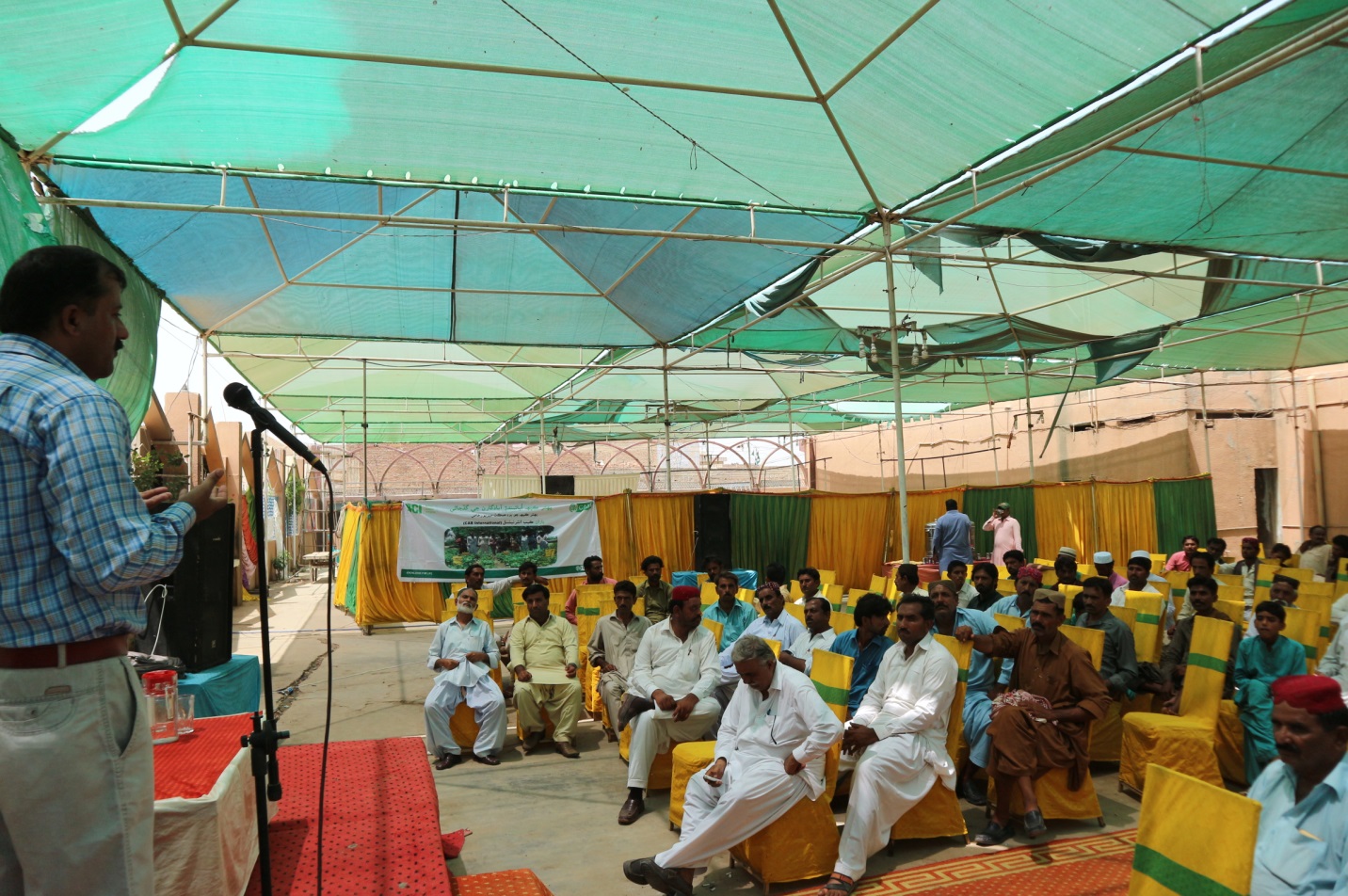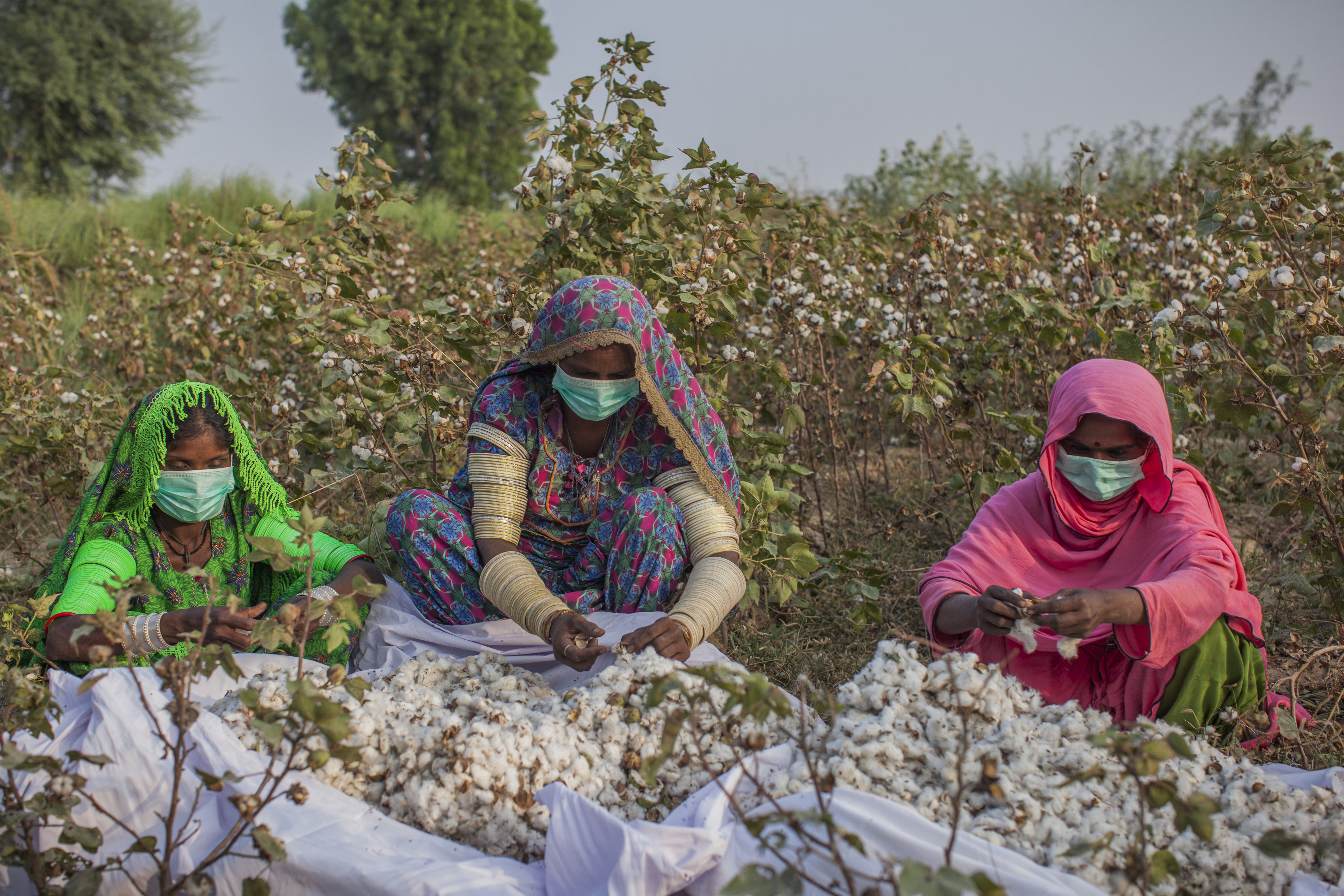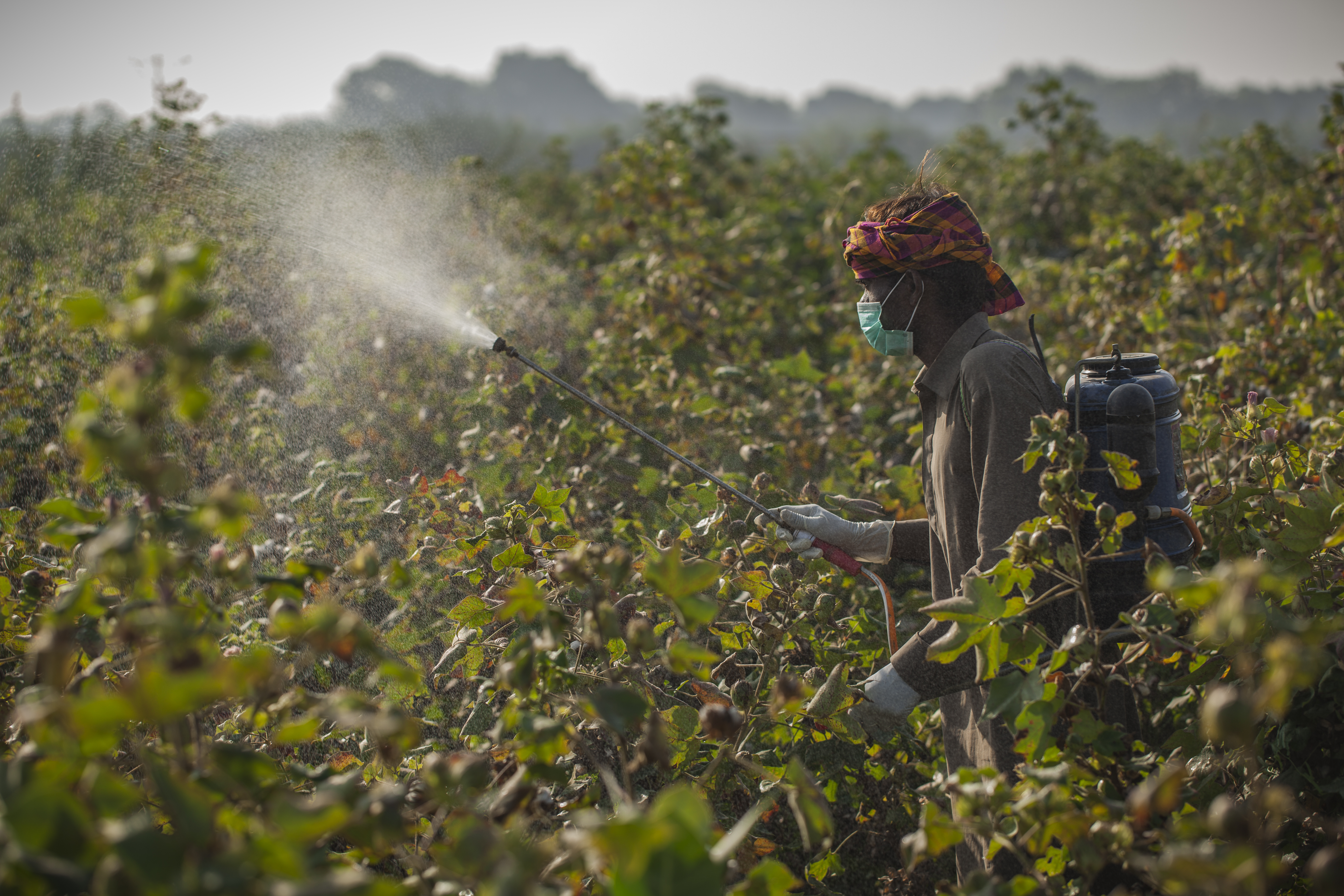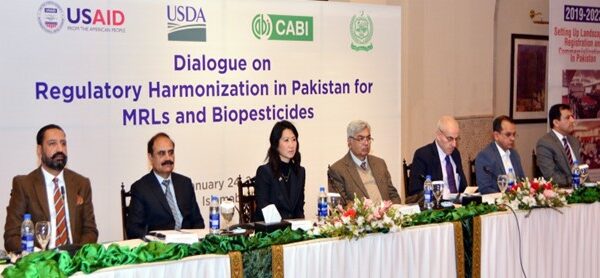
Meeting of cotton farmers in progress
Cotton. How many of us come into daily contact (literally) with this wondrous natural fiber? Used in a huge array of materials, from the obvious clothing and cotton wool buds, to the less obvious products like cottonseed oils used to make soap, margarine, emulsifiers, cosmetics, pharmaceuticals, rubber and plastics, the cotton plant is woven into the fabric of our lives.
We might take its ubiquity for granted, but cotton’s existence on our high streets and in our wardrobes is, to a large extent, dependent on millions of smallholder farmers in developing countries tackling the constant harvest destroying threats posed by crop pests.
In Pakistan, the fifth largest cotton producing country but where 10–15% of crops are lost through poor traditional practices. CABI’s Better Cotton Initiative (BCI) projects encourage farmers to implement Better Cotton production principles and Good Agricultural Practice methods through regular on-farm training sessions and by measuring the impact of improved practices.

Copyright: Asim Hafeez
Recently, CABI in Pakistan organised seminars with cotton farmers to provide them with the opportunity to learn from CABI experts and exchange insights with other farmers in the area.
One such seminar was conducted at Tehsil Shahdadpur, Sindh province in the south east of the country. The event was attended by 100 lead farmers involved in the project and their farm workers. The seminar was facilitated by Ghulam Nabi Saheto, Producer Unit Manager, CABI who gave a presentation on recent activities by the Producer Unit.
Ashfaque Ahmed Nahiyoon, BCI Training, Monitoring and Evaluation and Quality Assurance Manager, CABI trained the participants on Integrated Pest Management (IPM) for cotton crop. He explained that adoption of IPM practices not only enables farmers to reduce the cost of production but also the damage to the natural environment and farmer’s health.
Following this, Meer Muhammad Kolachi, Monitoring and Evaluation Officer, BCI, CABI emphasised the importance of using personal protective equipment (face masks, gloves and protective clothing) during spraying to minimise the associated health risks.

Copyright: Asim Hafeez
Farmers also shared their experiences with the CABI team on issues such as; chemical and other non-chemical pest control practices, appropriate levels of pesticide usage, controlling Pink bollworm (PBW) and getting more yield.
Farmers discussed how they are monitoring PBW by using simple bottle pheromone traps – jars covered in a sticky pheromone substance which attracts and catches male PBW moths. A farmer, Muhammad Khan Wassan, shared with attendees how he was trapping hundreds of PBW adults in each bottle every day by installing just eight traps on his acre of cotton crop.
Another farmer called Gul Muhammad Thaheem was pleased to share how he sprayed Neem extract (botanical extract) on young PBW’s to delay the use of synthetic pesticides. It not only reduced pest attacks but also protected him and the local environment from the ill effects of using chemical pesticides.
The impact of IPM on yield was also discussed, with farmer Faiq Ahmed Jamali having already harvested 1,800kgs per acre, a 50% increase on the previous year, with more still to be harvested before the end of the season.
Concluding the seminar, farmers requested more seminars be organised regularly so they can learn more from CABI experts to address the challenges of cotton cultivation in this region of the country.
Beyond helping to put the clothes on your back, the BCI means cotton farmers in Pakistan can continue to protect their livelihoods, health and local environment.
In part two of ‘CABI on cotton’ published on the CABI blog, we explore two success stories from farmers – The famous farmer and The compost king.
1 Comment
Leave a Reply
Related News & Blogs
Sindh farmer gains global recognition for sustainable cotton farming innovations
Photo credit: Evronas/Better Cotton. Location: Better Cotton Conference, Istanbul, Türkiye, 2024. Sindh farmer Fateh Muhammad Laghari has gained recognition for his commitment to sustainable cotton farming practices as part of the Better Cotton Member…
5 December 2024





Reblogged this on The Plantwise Blog.